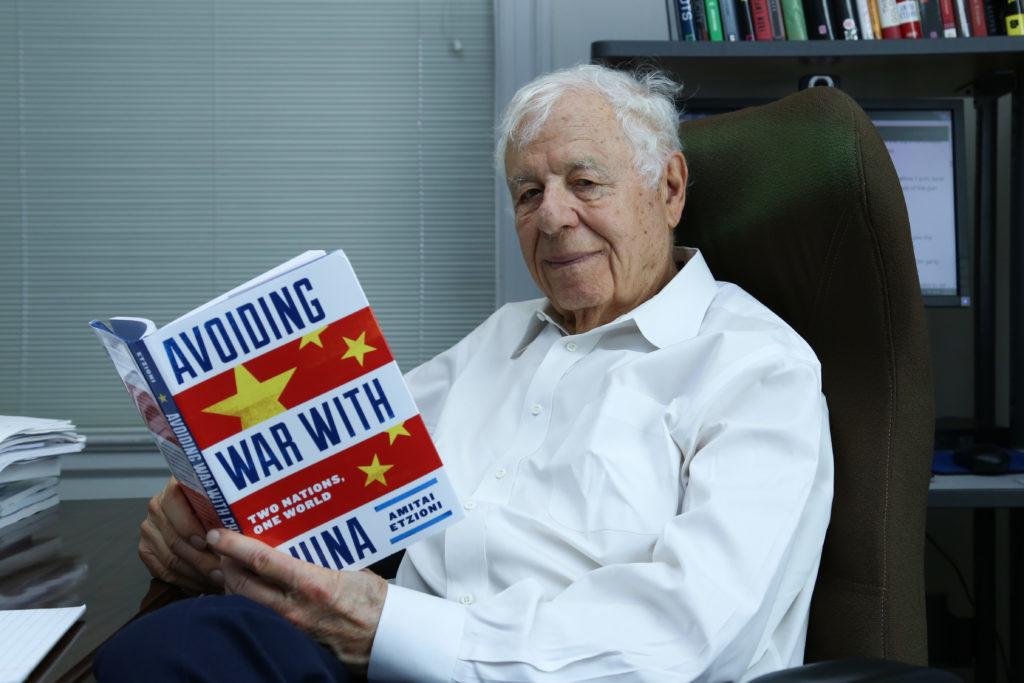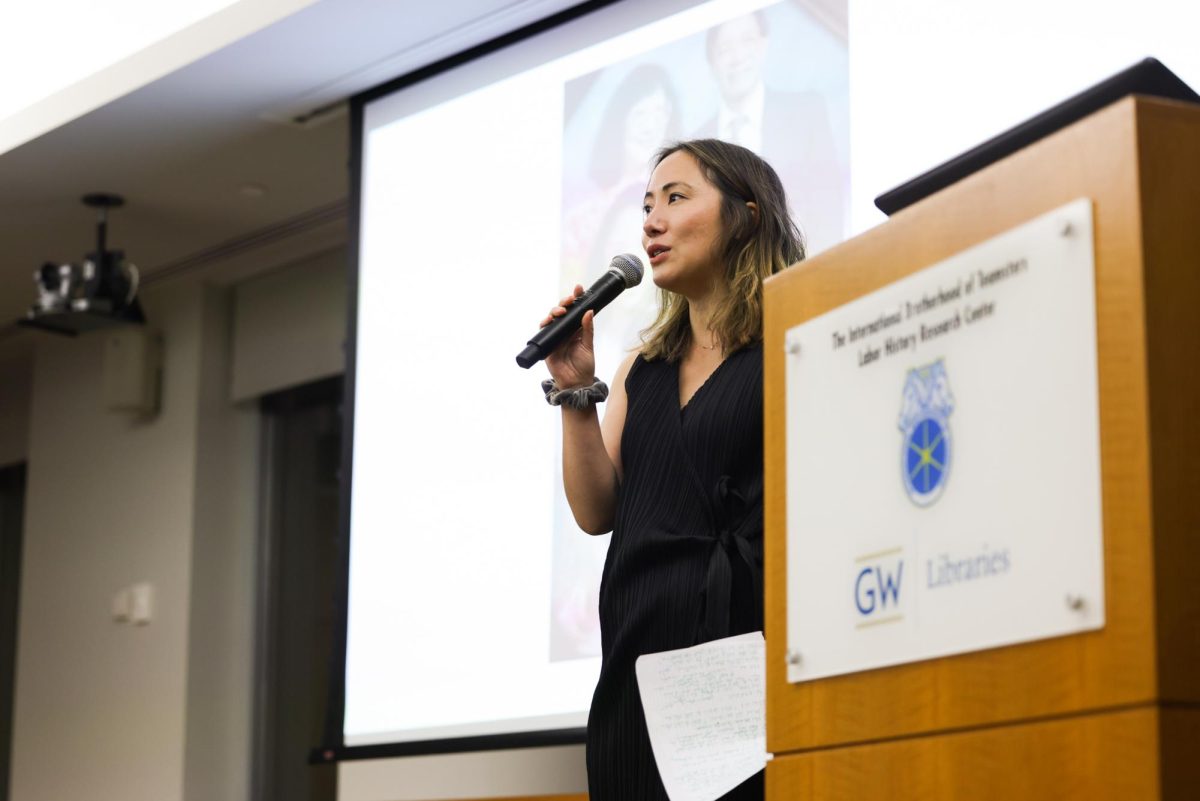With final exams and assigned textbooks finally off your to-do list this summer, it’s understandable that the last thing you want to think about is reading. But think again, because you’ll want to flip through the pages of these unique books written by GW professors this year.
Check out these books for riveting summer reads that double as a way to kiss up to future professors and learn more about what they do in their free time.
Prepare for back-to-school political debates: “Avoiding War with China” – Amitai Etzioni
Without classes, club meetings and homework assignments taking up your time, summer is the perfect opportunity to catch up on current events around the world, and “Avoiding War with China” will help you do just that.
Amitai Etzioni, a professor of international affairs, will release his 12th book, “Avoiding War with China,” May 2. From the first chapter, readers will begin to learn everything about the U.S. relationship with China and why Etzioni thinks that war between the two countries could be coming sooner than we think.
Etzioni said the actions of the current presidential administration towards China, the record number of weapons bought by the Pentagon over the past year and the rise of China as an economic force are all factors that contribute to the growing concern that the U.S. could soon go to war with China.
He said that if he could do anything to help impede the war with China, then he has done his job as a professor and scholar of international affairs.
“If I could share that experience, then my job is done,” Etzioni said. “If I could in any small way make it less likely we go to war, it is worth the effort.”
Etzioni said his goal is to educate people with the book and hopes that students will read it because, if America were to go to war with China, then everyone would be impacted.
Read outside your comfort zone: “Earth” – Jeffrey Cohen
Jeffrey Cohen, an English professor and director of the Institute for Medieval and Early Modern Studies, collaborated on the book “Earth,” which was published March 9, with scientist Linda T. Elkins-Tanton.
As an expert in medieval studies, “Earth” is an unlikely project for Cohen. But he said that he created a book that discusses the Earth and its history in an accessible way, even for students who aren’t science buffs. Through a series of emails, texts and status updates that make up the body of the book, the authors detail the Earth and how it relates to the environment, ecology and other topics related to people’s everyday lives.
“Earth” is an easy summer read that is perfect if you’re looking for a book to complete while you tan on the beach. Cohen explained that the book is short enough to complete in just three hours.
The structure of the book allows the reader to be immersed in the conversation. Cohen said his book is the “ultimate” book for GW students because they’re curious about a range of subject areas, and the book bridges the sciences and humanities.
“That is the kind of book that brings together knowledge that too often gets separated, and tries to show why doing work that crosses traditional disciplines is really important,” Cohen said. “It’s as ambitious as our GW students are.”
Learn about the Rwandan Genocide: “Harvest of Skulls” – Abdourahman A. Waberi
Abdourahman Waberi, a French professor, wrote “Harvest of Skulls” about his visit to Rwanda during 1998 and 1999. The book, which reflects on the 1994 Rwandan Genocide, was originally written in French but was translated to English this year.
“Harvest of Skulls” describes people’s first hand experience with the Rwandan genocide through interviews that Waberi did with citizens whose family and friends were killed in the genocide.
Although this read is emotionally taxing, at only 80 pages the book will help you understand what happened through the lens of personal stories.
Waberi hopes that his book will have an impact on students and thinks the emotional nature of the stories will help students to get an “intimate picture” of what occurred during the genocide.
“It’s a tough book, but it’s a book that has to touch and affect and impact each and everyone because now the genocide of the Tutsis is something that impacts everyone,” Waberi said.




